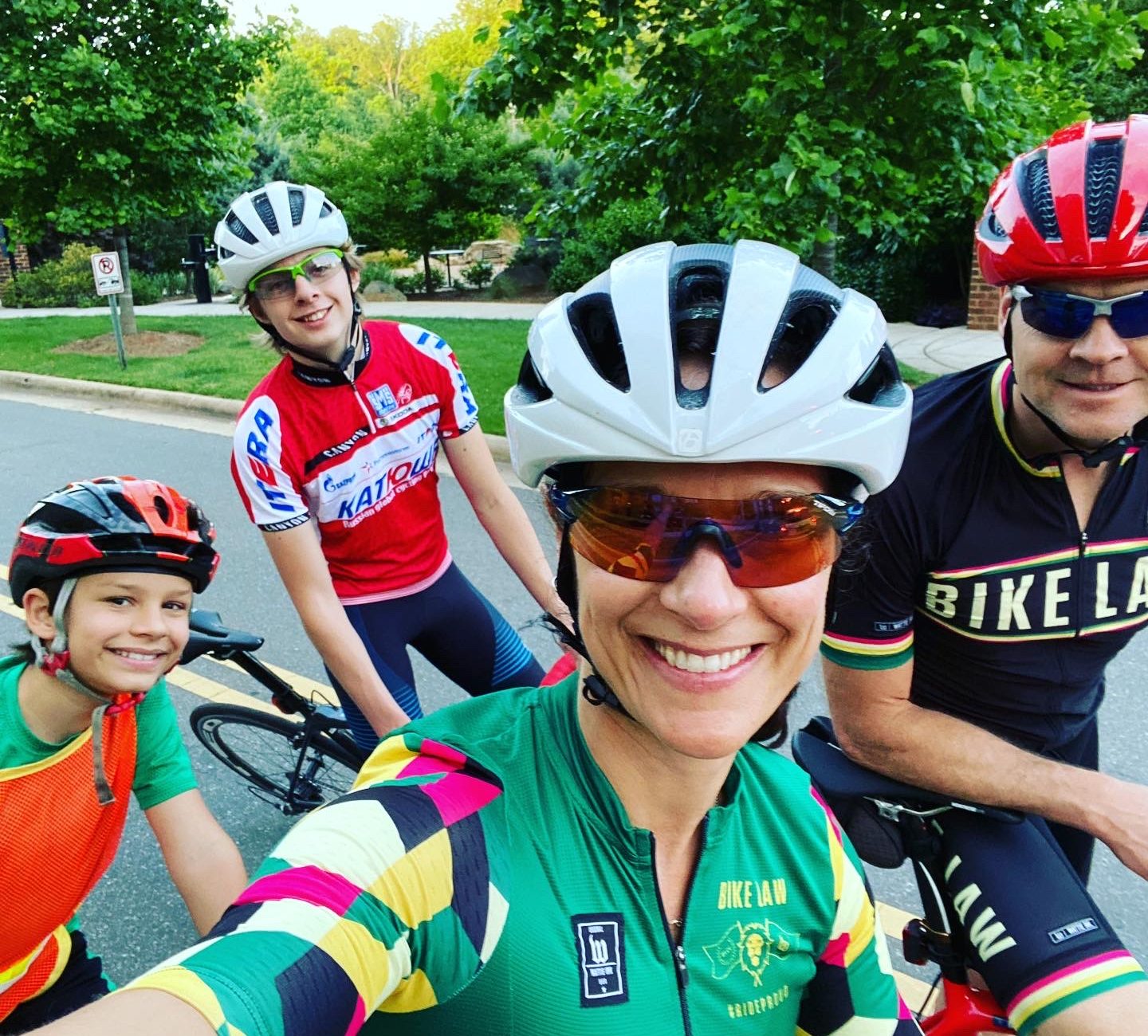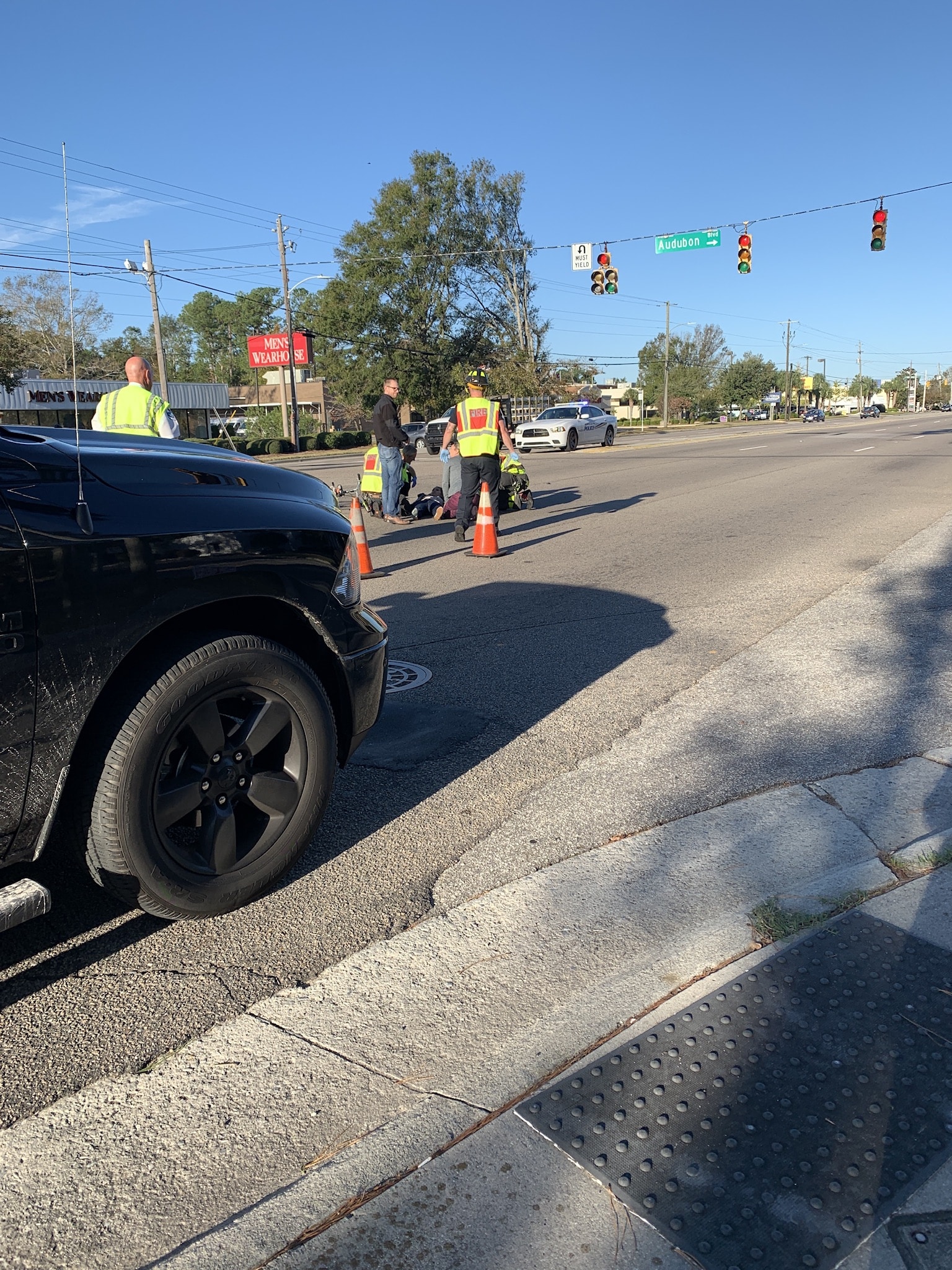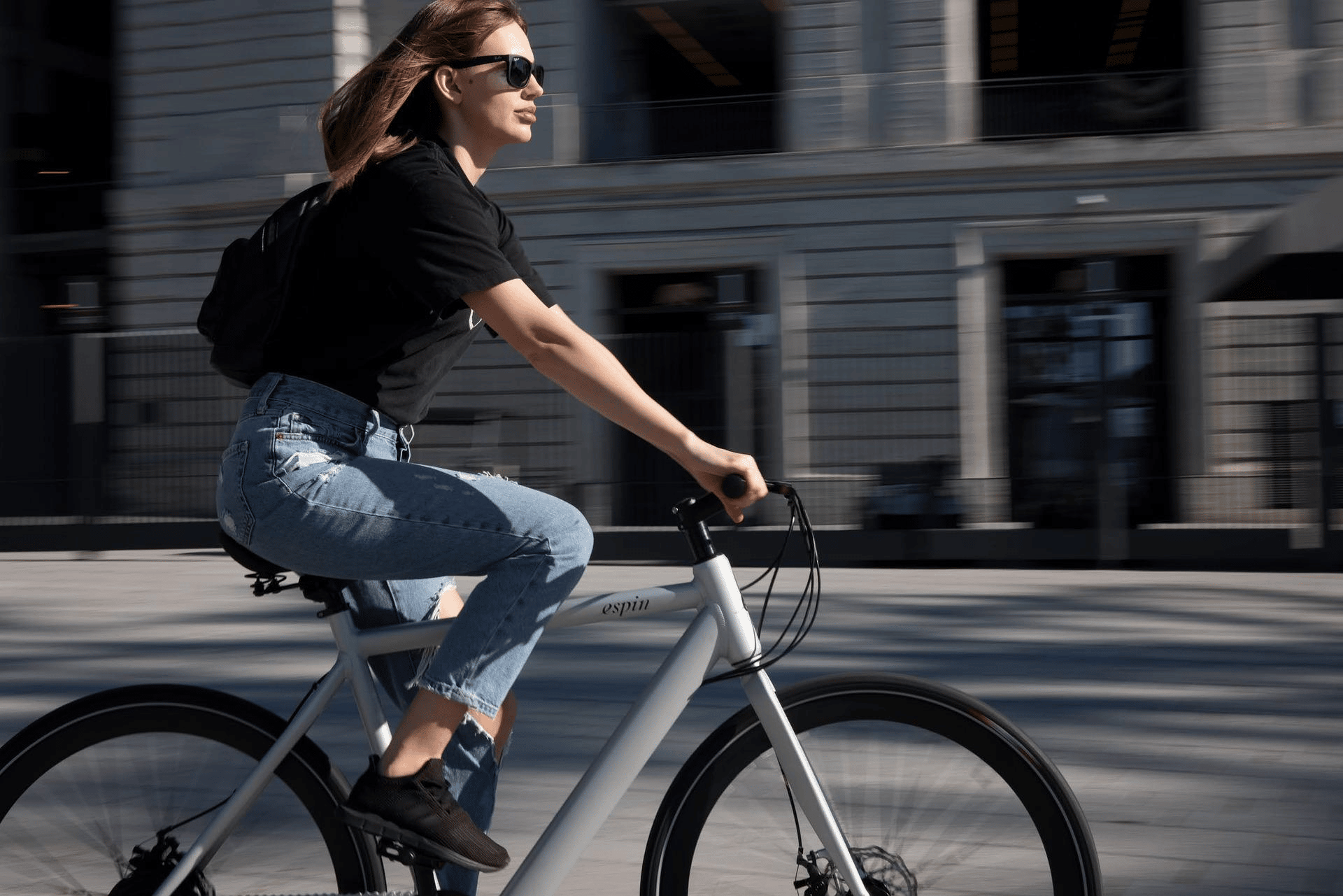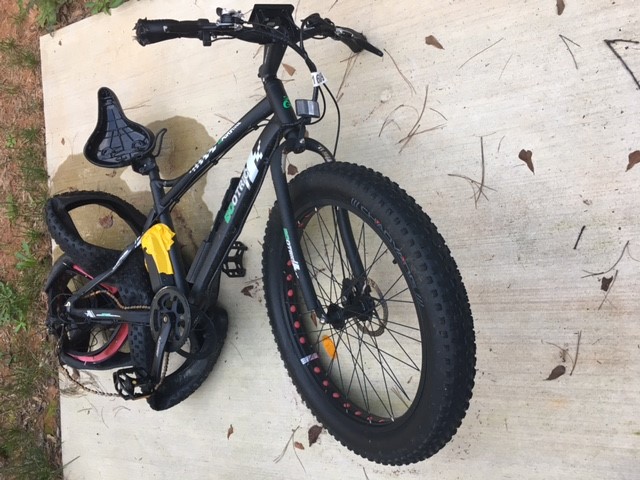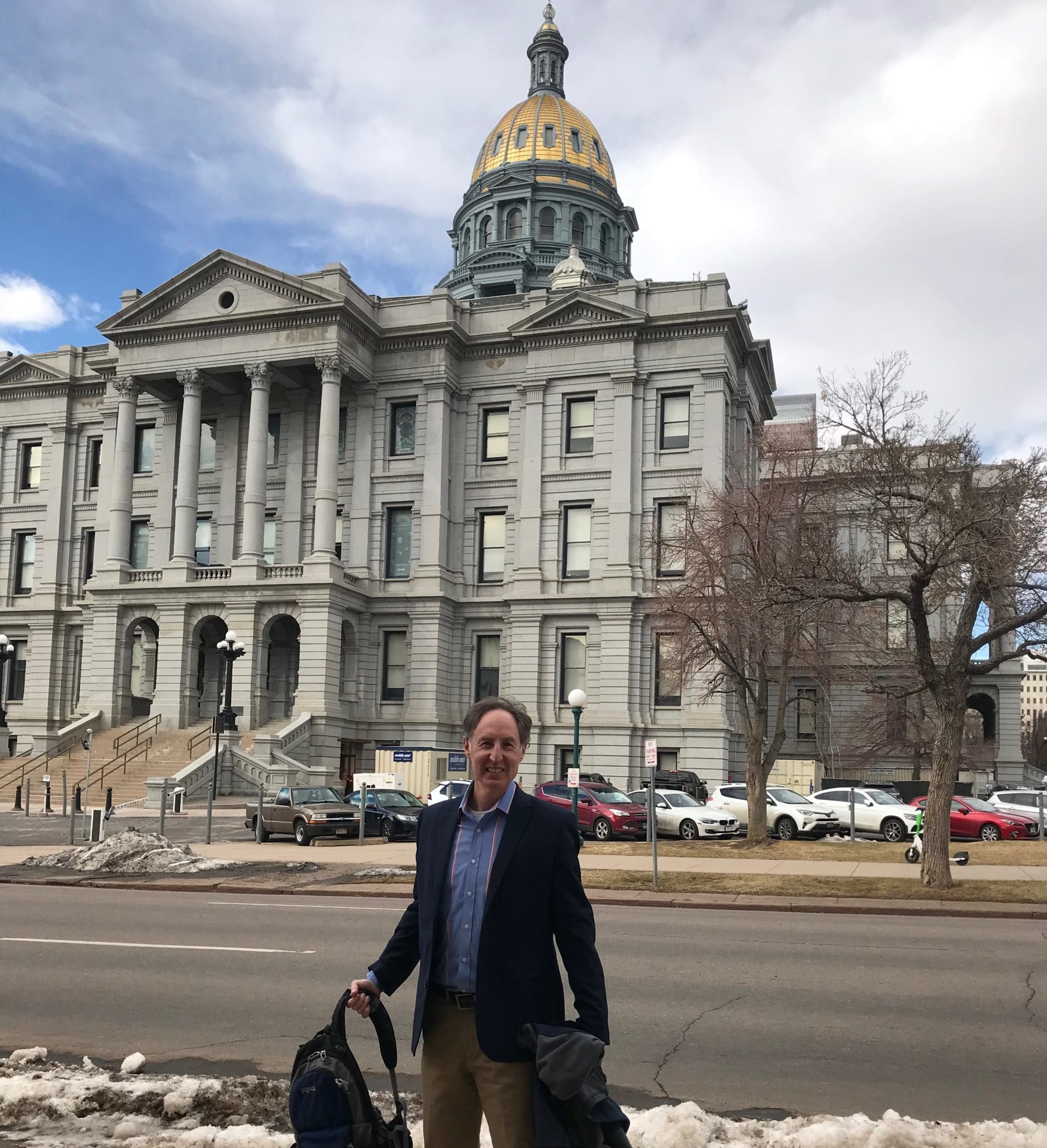Meet Law Ann, the first member of the Law Network
Welcome to Day 2 of our Women on Bikes Bike Law takeover! For the 14 days leading up to Women’s Cycling Day 0n October 10th, we will be celebrating 15 of the most thoughtful, committed, smart, and compassionate women in the saddle, as our tribute to female cyclists everywhere.
Women on Bikes: Bike Law Ann
Pants, like bicycles, have long been a necessary ingredient in every historical (and contemporary) recipe for independence, autonomy, and mobility. Whether a metaphorical expression of power (who “wears” them?), or a literal necessity to prevent unwanted exposure or an entanglement with our bicycle spokes, it takes a very special kind of courage for women to step into any role (or article of clothing) that is generally associated with being a man.
The Bike Law Network of independent bicycle crash attorneys is a legal collective of bicycle crash lawyers who:
- Ride;
- Understand and appreciate the stark difference between a bike accident and a crash; and
- Cultivate equity in places where it should, and could, but doesn’t exist. While representing and advocating for ALL people on bikes, each member of Bike Law National wears many hats on a day to day basis, but a few are required to work harder and smarter; like riding into a headwind, you can’t see it. But you can feel it and everyone knows it’s there.
A civil rights lawyer in her former life (although I would confidently argue that pursuing cycling justice and representing bicyclists that have suffered the indignities of a crash — or worse — are indeed the exact same things), Ann Groninger is my favorite example of what competence, experience, compassion, femininity, and lots of watts can look like when attributed to the same human being. And as a precedent setting trial attorney in a contributory negligence state (a prehistoric law which says that should you be found to have contributed 1% to your crash, you’re barred 100% from any civil recovery), it’s no surprise that after working together on a non-bike related civil rights case many, many years ago, Bike Law Founder Peter Wilborn was not about to take any of what Ann brought/brings to the table for granted. He asked her to be the first member of the Bike Law Network. That might have been the best professional decision Peter made as Bike Law North Carolina and the scalable growth of Bike Law’s ability to make North American biking better and safer was born from the brilliant and committed work of a formidable female cycling crash attorney and the wisdom of an objectively smart and successful male colleague who recognized how special she is.
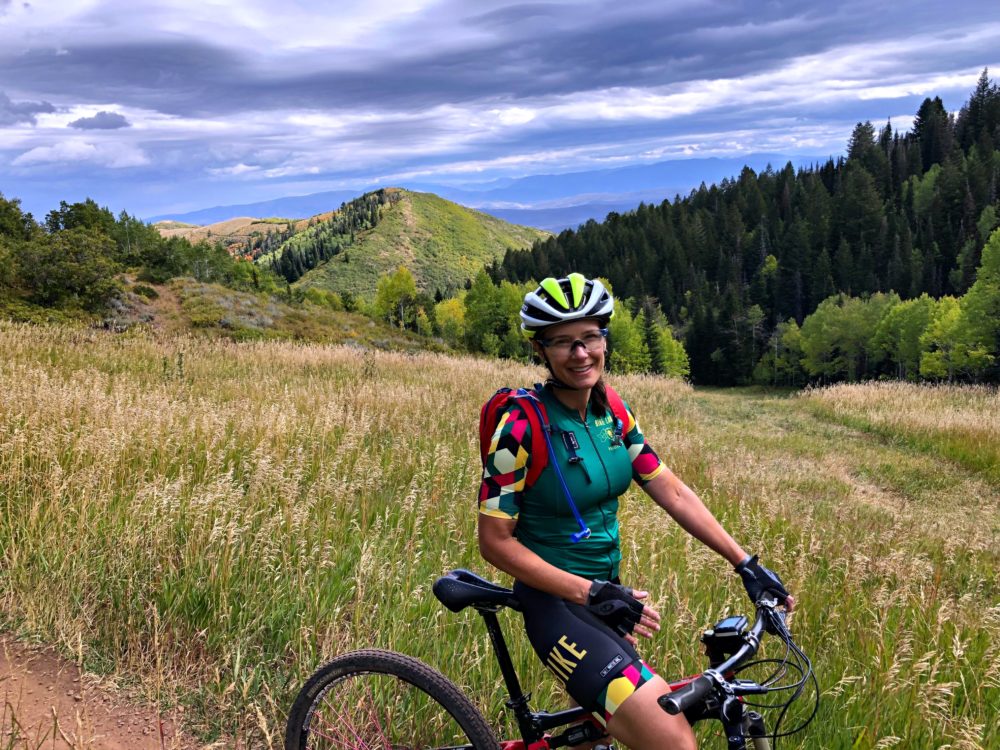
In the context of practicing law, Ann is his equal. In the saddle, especially on a climb, she is superior.
Ann’s Background
Growing up in Ohio, New York, New Jersey, and Michigan, Ann Groninger’s tenacity and welcoming humility are evidenced in the countless indicia of notable experiences she’s had, some in her very early childhood. “[My first time on a bike was] in our little neighborhood on Meore Way, Washingtonville, New York. I was 5. I remember my dad holding my seat and running behind me. He remembers me insisting on figuring it out myself.”
“I rode all the time growing up, mostly for the freedom to go places without help from my parents and also to ride around with the other kids in the neighborhood. That hasn’t changed a whole lot, except I feel liberated from my car (and not the parents!). I also love riding for the way it makes me feel – strong, happy, and not as stressed out as before I hit the road, or the trail.”
As a mother herself, and as a lawyer who’s represented countless bicycle crash victims and the families of many deceased cyclists who were killed while riding a bike, Ann has a unique and acute appreciation for both the importance of riding her bike, and the risks that come with doing so.
Especially when it comes to being in the saddle on rides with her son.
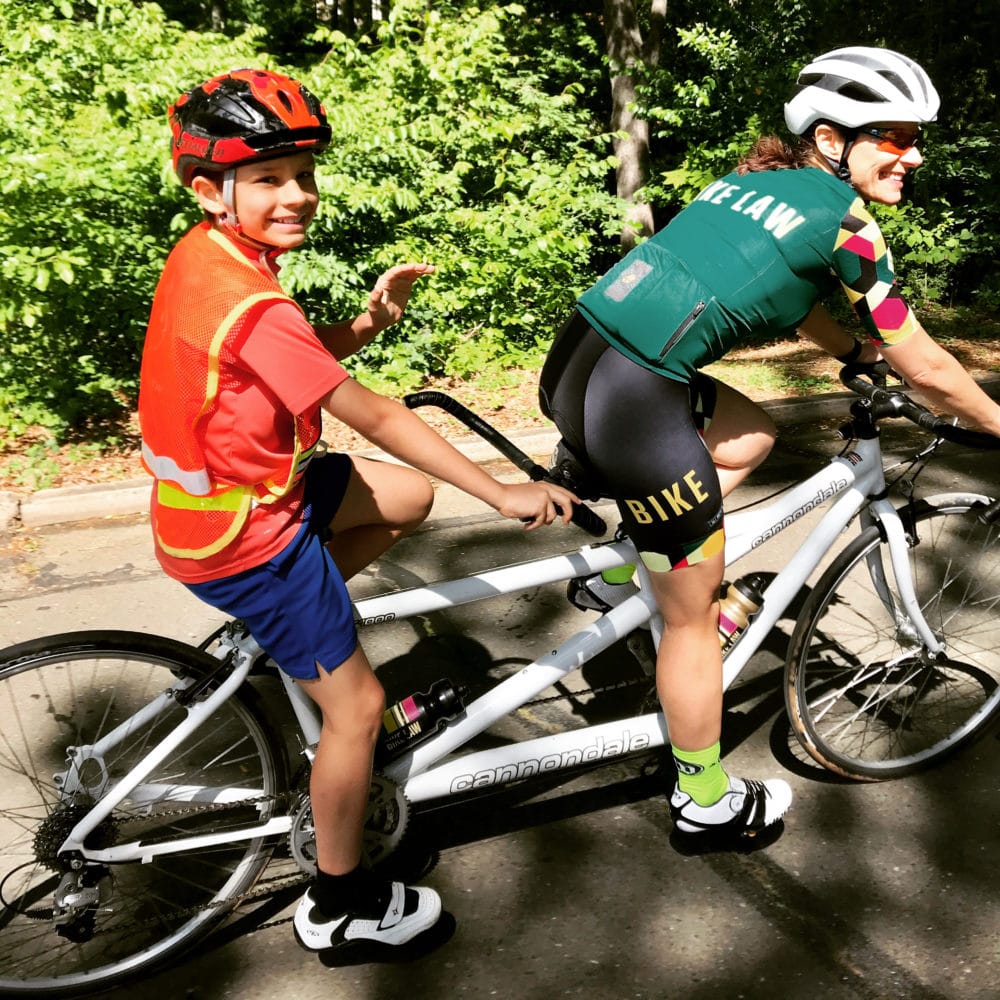
Women on Bikes: Identifying Problems and Findings Solutions
The country is a big place and the quality and conditions of daily life, cycling included, vary from state to state (and even from one municipality to another). Splitting her time between Charlotte, NC, and Park City, Utah, Ann says she has mixed feelings about the places she rides most. When I asked her if she feels safe, she said, “Yes and no. For the most part, I feel confident on my bike, but I am nervous when I have my 11 year old son with me and I am very conscious about drivers who are in a hurry and those not paying attention. We have our work cut out for us.”
Inequities, and gender inequities specifically, exist everywhere: In our offices, courtrooms, group rides, and maybe even in our homes.
Between the dangers imposed up us by aggressive and inattentive drivers and the imperfect-by-definition (but beautiful and empowering) act of riding a bike, many women in the saddle, especially those who might share the same professional aspirations and accomplishments as Ann, might have a different take on what it’s like and what it means to be a woman in the saddle.
“My most prominent experience as a woman cyclist is a positive one, and that is the friendships I have built with other women cyclists. And back and when I was younger, and quite a bit faster, I thought that most of the men on the faster rides were welcoming and friendly.”
But what about all the women who express intimidation, fear, or the commonplace feeling of inadequate fitness (physically or within measured suitability)? Ann continued to explain, “I also had been riding in groups for many years before I started those [group] rides. I think for newer women riders finding a place to start can be challenging.”
Agreed.
So what can we do to address these legitimate and unnecessary challenges facing women who would otherwise love to get in the saddle? Ann answered easily. “Lead by example for one thing, and also keep an eye out for new riders and try to include them. Charlotte has some great groups for newer women riders, including a group called “Leave Fear Behind” that organizes rides and also learning/social sessions for newer riders.” And for the women looking longingly at their first bike and to their first ride? “Talk with and follow women bicyclists [who are] experienced in the type of bicycling you’re interested in; get the right bike and equipment (lights, bags, etc); learn the best routes. Also, join a group to make it fun and to integrate bicycling into your social life.”
And the inequity mentioned above? Well, here’s why Ann is so unique. Positivity is as important as diversity. It’s “critical to every successful movement. As with any activity, women bring a different dimension to cycling. When we see a problem, we will start looking for a solution. I believe that the more women who buy into cycling as a form of transportation and recreation, the more improvements we are likely to see … our biggest challenges are perceived and can be overcome. For example, with riding for transportation, I hear people talk about lack of time or proper equipment; or hair/clothing issues. All of these obstacles are easily overcome with the right advice and a bit of practice. Once you get used to getting around by bike, getting in a car becomes a last resort.”
Yes, “we will continue to have challenges until bicycling is recognized as equal, or superior to, driving a car. This recognition must be enforced at all levels, via traffic enforcement, legislation and local infrastructure.” But like Ann says, and firmly believes, “Cycling can really open up your world in so many ways. So many of my favorite experiences, from age 5 and up, involve the bike. If everyone could experience this, our world would be a better place.”
In a period of time that is so rife with adversity and legitimate reasons to feel overwhelmed, hopeless, and even afraid, it’s women like Ann that remind me of why bicycles are so important and how significant the roles that women who ride them are in cultivating and preserving life’s sweet spot: daily balance, equality, freedom, health, and joy.
Tell Ann Thanks
Typically I would tell you to reach out to Ann if you are in need: of a bicycle accident lawyer, a safe cycling route or LBS (local bike shop) recommendation, a comprehensive lesson on North Carolina’s bike laws, or the most inclusive women’s only or women led group rides in the Charlotte area. Today, as we roll towards Women’s Cycling Day on October 10th, I encourage you to reach out to her for a different reason. Send her an email or post a comment below to say “Thank You.”
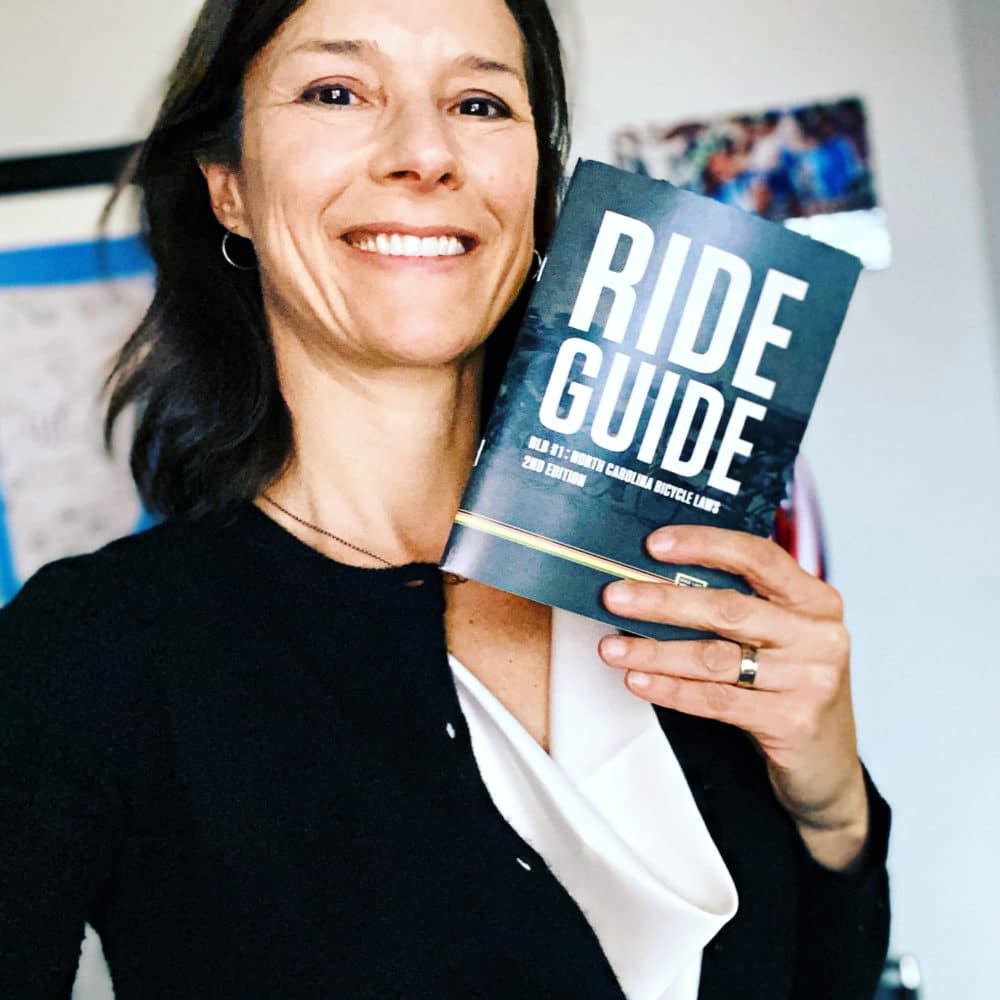
Her success as a Bike Law Network lawyer, trailblazer, advocate, mother, friend, daughter, teacher, and cyclist does not come from competition or comparison. She’s an effective role model because she is humble and welcoming. She has mastered the art of sharing. It’s her generosity and willingness to tap into the same fortitude and independence her father recalls about her and the first time she rode a bike at 5 years old that define her as a change-maker.
She gives the best of herself in every one of the hats she wears, and I am immeasurably grateful for her and the opportunity to grab Ann’s wheel and ride towards a safer, scalable future in bicycling that’s being saved, shaped, and celebrated by women on bikes like her.

Rachael Maney is the Director of the Bike Law Network and of the non-profit Bike Law Foundation.



